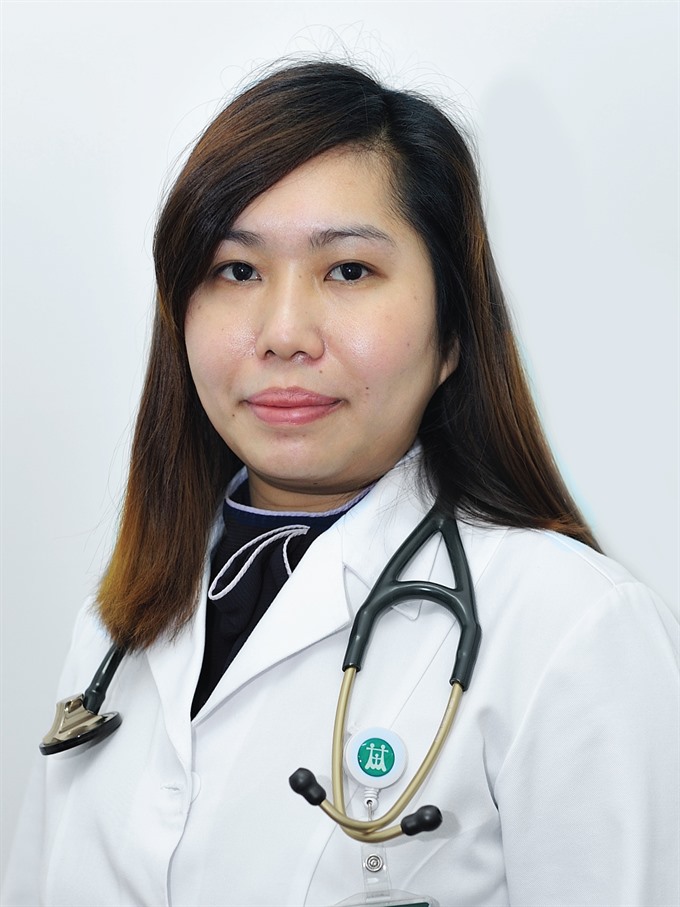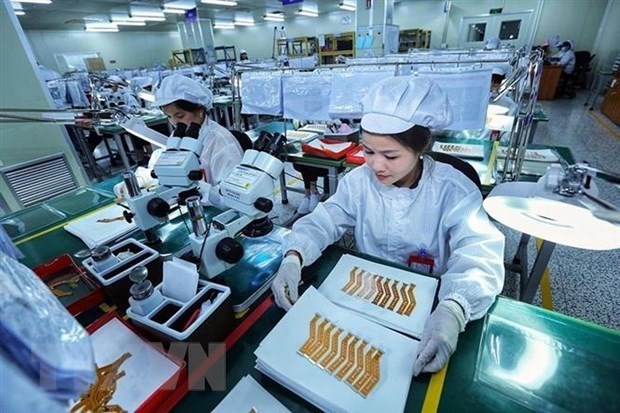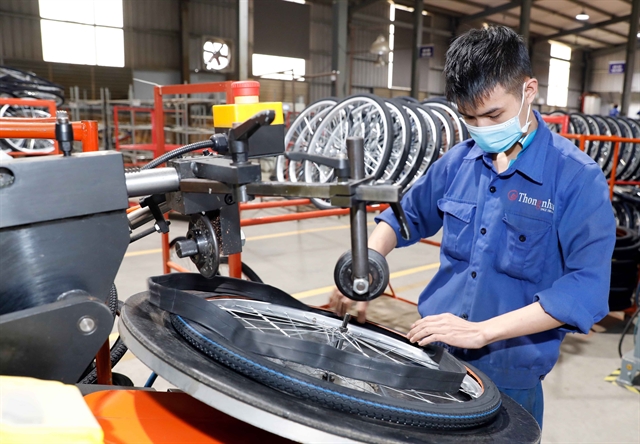 Life & Style
Life & Style

As modern-day women, it’s all too easy to use the “I’m too busy” excuse, so you may be tempted to let your annual breast screening or a lipid profile test slip. Don’t let that happen. As busy as you are as a modern women, there is no reason why you cannot have a healthy life. Here are five of the most important medical tests that all women should take:
 |
| Doctor Catherine Gonzalez. — Photo Courtesy of Family Medical Practice Hanoi. |
By Dr. Catherine Gonzalez
October is Breast Cancer Awareness Month
As modern-day women, it’s all too easy to use the “I’m too busy” excuse, so you may be tempted to let your annual breast screening or a lipid profile test slip. Don’t let that happen. As busy as you are as a modern women, there is no reason why you cannot have a healthy life. Here are five of the most important medical tests that all women should take:
Pelvic Examination and Pap smear
With cervical cancer said to be the second leading cause of death for women, uterine and pelvic health should be given prime importance. It is always advisable that you visit your gynecologist periodically and have a complete pelvic examination and a Pap smear test.
Do not get scared as most do on hearing about these tests. A pelvic exam checks for abnormalities such as growths while Pap smear is a simple screening test to check if any cancerous cells are present in the cervix, which is the connecting part of the vagina to the uterus. A swab is inserted into the vagina to remove cells from the cervix. The cells are then examined in a laboratory for signs of pre-cancerous or cancerous changes. Any female who is sexually active requires this test. Age is no limit but generally it is required for those females who are sexually active.
How often: Ideally, the testing should be done every year after 30.
Tips: For the most accurate Pap results, avoid having sex or using vaginal medications (such as anti-yeast creams) one to two days before your appointment.
HPV (Human PapillomaVirus) Test
You might be surprised to learn that Human Papilloma Virus (HPV) is the second-most common cause of female cancer after breast cancer. Do you also know that 80 per cent of all males and females up to the age of 60 get infected with human papilloma virus at least once in their lifetime? For women, screening is critical to detect most HPV-related diseases. Now, HPV vaccines offer the best protection. All young women from 9-26 years old, should get the 3-dose vaccine to protect themselves against this potentially fatal disease.
Physical Breast Examination
Breast cancer cases have been rising steadily in the last decade, and it is now the most common cancer in women, way ahead of cervical cancer. Both the incidence of as well as deaths due to breast cancer are more than that of cervical cancer. Hence, regular physical breast examination becomes compulsory. Females undergo many hormonal changes starting from puberty to menopause, which causes changes in her breasts and glands around them. These changes can be examined physically by noticing it or by touching and feeling the changes. Checking breasts for lumps, skin changes, thickening, and nipple discharge is the best way to be vigilant about preventing breast cancer.
What should be done: Palpation of the breast and underarm area to check for lumps, dimpling, pain or tenderness, inflamed skin, and any other changes in the breasts. A nipple exam checking for discharge, crustiness, or blockage. A self-breast examination is also recommended.
When to get it done: Around the age of 18 years and above. Do them about a week after you start your period, when breasts tend to be less swollen and tender.
How often; Once a year for women in their 30s, if you’re healthy, to make sure there haven’t been any changes for the worse. Younger women may not need a yearly screening if they’re healthy.
Mammography
Mammograms are low-dose X-rays that can often find a lump before you ever feel it, though normal results don’t completely rule out cancer. It is recommended that while you’re in your 40s, you have a mammogram every year. Then during your 50s through your 70s, you can switch to every other year. Of course, your doctor may recommend more frequent screenings if you’re at higher risk.
Lipid Profile
This test checks for good (LDL) and bad cholesterol (HDL) along with triglycerides and total cholesterol levels. Cholesterol is a fat molecule, which if present in higher levels can get accumulated in the blood vessels and can affect the health of your heart, blood vessels, and brain. These tests help determine your level of risk for heart disease (the number-one killer of women) and stroke.
When to get it done? A lipid profile is best done after fasting for 9 to 12 hours, so book a morning appointment and skip breakfast.
How often? This test is advised after the age of 30 years and should be done once in five years if previous test results were in normal range. However, high levels require regular screenings, for instance, once in six months. Women who have other risk factors such as family history of heart disease, diabetes, and blood pressure would also be advised other specific tests such as high-sensitivity CRP test (hs-CRP), which measures inflammation, an indicator of heart health. If you have a history of depression, you may have increased levels of inflammation.
FMP Hanoi not only focuses on quality treatment, but also puts strong emphasis on preventive care services. To fit into your busy life, we offer one stop services and tailor female checkup packages to suit your age, family history, and personal risk factors. – Family Medical Practice Vietnam
*Doctor Catherine Gonzalez is a General Practitioner at Family Medical Practice Hanoi.
For more advice on any medical topics, visit Family Medical Practice Hanoi on 298 I Kim Mã, Ba Đình or call (024) 3843 0748. Email: hanoi@vietnammedicalpractice.com or check out www.vietnammedicalpractice.com
FMP’s downtown HCM City location is at Diamond Plaza, 34 Lê Duẩn, District 1; other facilities are at: 95 Thảo Điền Street, District 2. Tel: (028) 38227848. E:hcmc@vietnammedicalpractice.com
FMP Danang is located at 96-98 Nguyễn Văn Linh Street, Hải Châu District, Đà Nẵng. Tel: (0236) 3582 699. E: danang@vietnammedicalpractice.com.









